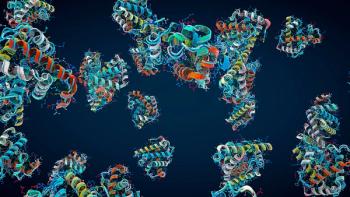
- BioPharm International-05-01-2006
- Volume 19
- Issue 5
From the Editor in Chief: Engineering Oneself Out of a Job
Alexander Fleming's original process for making penicillin was a low-volume, and presumably, labor-intensive affair. Today, it is a highly optimized, low-budget operation that is carried out only overseas. In other words, says Wei-Shou Hu, PhD, of the University of Minnesota, we engineered ourselves out of a job. Could we do the same with mammalian cell culture? Hu posed this question during a presentation at the BIO conference in April.
Alexander Fleming's original process for making penicillin was a low-volume, and presumably, labor-intensive affair. Today, it is a highly optimized, low-budget operation that is carried out only overseas. In other words, says Wei-Shou Hu, PhD, of the University of Minnesota, we engineered ourselves out of a job. Could we do the same with mammalian cell culture? Hu posed this question during a presentation at the BIO conference in April.
Laura Bush
Hu's suggestion is challenging, not only from a technical and scientific standpoint, but from an emotional and economic one. The idea of seeing one's job disappear as a result of engineering advances is frightening. In the 1951 film, "The Man in the White Suit," Alec Guinness's character invents a fabric that never stains or wears out. He is thrilled with his invention, but the workers at the suit plant—and the company's management—are not.
The movie's story uses a somewhat fanciful example, but throughout history, many jobs, and even industries, have become obsolete, and both workers and management have resisted all along the way. The Luddites were not unique to early nineteenth century England; they are all of us, a motif that is repeated century after century. Does the oil industry really want us to drive alternative-fuel cars—or even fuel-efficient ones? Does the egg-based vaccine industry really want to convert to cell-culture methods?
Hu's question poses a somewhat different scenario, however, one that is not simply about powerlessly finding oneself in a function that is no longer needed. It's about actively pursuing such change as a goal, and changing one's identity and role in the process.
The Juvenile Diabetes Research Foundation embraces that approach. Their mission is to cure the disease, and thus eliminate the need for their organization.
I believe it was the French poet Paul Valery who predicted that the poets of the twenty-first century would not be writing poetry. To a poet, such a thought could be considered blasphemous. Yet the idea presents an open-ended list of opportunities. What mission would you embark on if your current role were no longer needed?
Articles in this issue
almost 20 years ago
Final Word: Creative Solutions Can Ensure Pandemic Flu Preparednessalmost 20 years ago
Facility Design and Expansion: Commissioning for Innovationalmost 20 years ago
Regulatory Gaps Regarding Sugars Used in Injectable Biopharmaceuticalsalmost 20 years ago
Letters to the Editoralmost 20 years ago
Maximizing Protein Expression in Filamentous Fungialmost 20 years ago
Best Practices in Demand and Inventory Planningalmost 20 years ago
StreetTalk: Investments in Avian Flu SoarNewsletter
Stay at the forefront of biopharmaceutical innovation—subscribe to BioPharm International for expert insights on drug development, manufacturing, compliance, and more.




